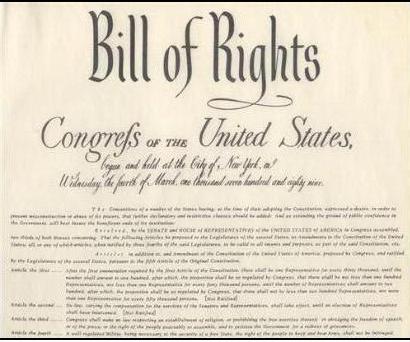At WiseGEEK, we're committed to delivering accurate, trustworthy information. Our expert-authored content is rigorously fact-checked and sourced from credible authorities. Discover how we uphold the highest standards in providing you with reliable knowledge.
What is Procedural Due Process?
Procedural due process refers to the system or method that a government uses to determine whether it should take action that would deprive a person of life, liberty, or property. These rights are afforded to people in the United States, and include the right to notice, a right to a hearing before an impartial decision maker, and an opportunity to raise objections. These procedural rights help protect a person from arbitrary governmental action. Procedural due process will vary based on the jurisdiction and on the interest that is at stake. For instance, a government will likely afford greater procedural protections to a person whose freedom is at stake than to someone who may lose his or her driver’s license.
In the U.S., the government weighs the individual’s interest, the procedural safeguards designed to protect that interest, and the cost to the government. This is why the process the government uses to take certain actions against people will vary. For instance, a person who gets disability benefits from the government may lose those benefits without the government affording him or her a hearing prior to termination. The person may appeal the decision and get the decision reversed, but the government is not obligated to provide a hearing prior to terminating disability benefits because U.S. courts have determined that disability benefits are not based on need. In contrast, a person who receives welfare benefits is entitled to a hearing prior to termination of benefits because welfare benefits are based on need.

In the U.S., procedural due process arises from the Fifth Amendment and Fourteenth Amendment to the U.S. Constitution. The Fifth Amendment protects people from actions of the federal government. The 14th Amendment applies to state governmental action against a person. Each state will also have its own state constitution that will provide procedural due process safeguards to people. The due process afforded by state constitutions may provide greater protection to a person than the U.S. Constitution, depending on how state courts interpret and apply such provisions.
Procedural due process is different from substantive due process. Procedural due process concerns how the government tries to enforce its laws. Substantive due process concerns the law itself. This means that a court will examine a particular law enacted by the legislative body and decide whether that law violates the Constitution. With procedural due process questions, the court looks at the mechanisms or methods that the government is using to enforce a law on a particular person.
AS FEATURED ON:
AS FEATURED ON:











Discuss this Article
Post your comments